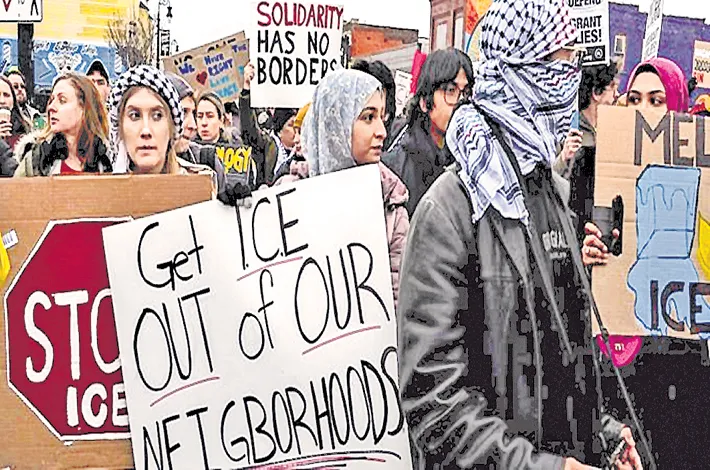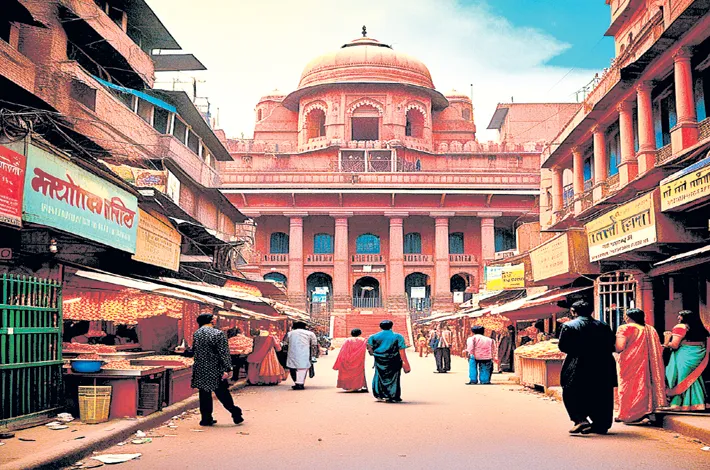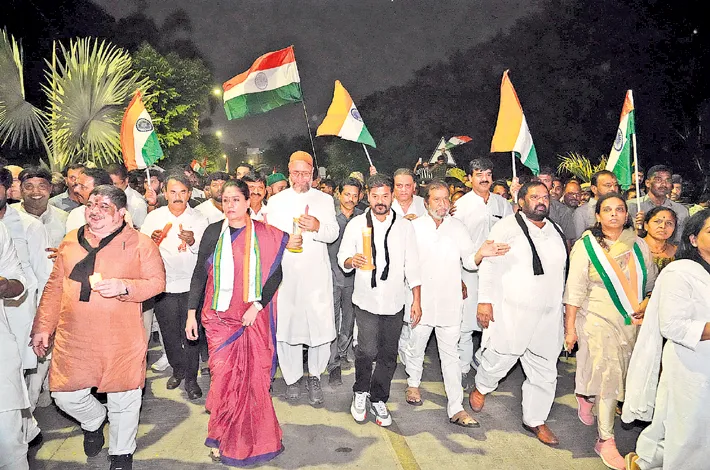US courts side with int’l students on legal status
24-04-2025 12:00:00 AM

Visa row | Judges across the country are now issuing orders against the widespread crackdown by Trump administration
Agencies Atlanta
Anjan Roy, from Bangladesh, was studying with friends at Missouri State University when he got an email that turned his world upside down. His legal status as an international student had been terminated, and he was suddenly at risk for deportation. "I was in literal shock, like, what the hell is this?" said Roy, a graduate student in computer science.
At first, he avoided going out in public, skipping classes and mostly keeping his phone turned off. A court ruling in his favour led to his status being restored this week, and he has returned to his apartment, but is still asking his roommates to screen visitors.
More than a thousand international students have faced similar disruptions in recent weeks, with their academic careers - and their lives in the US - thrown into doubt in a widespread crackdown by the Trump administration. Some have found a measure of success in court, with federal judges around the country issuing orders to restore students' legal status at least temporarily.
In addition to the case filed in Atlanta, where Roy is among 133 plaintiffs, judges have issued temporary restraining orders in states including New Hampshire, Wisconsin, Montana, Oregon and Washington. Judges have denied similar requests in some other cases, saying it was not clear the loss of status would cause irreparable harm.
Secretary of State Marco Rubio said last month the State Department was revoking visas held by visitors who were acting counter to national interests, including some who protested Israel's war in Gaza and those who face criminal charges. But many affected students said they have been involved only in minor infractions, or it's unclear altogether why they were targeted. The attorney for Roy and his fellow plaintiffs, Charles Kuck, argued the government did not have legal grounds to terminate the students' status.
He speculated in court last week the government is trying to encourage these students to self-deport, saying "the pressure on these students is overwhelming." He said some asked him if it was safe to leave their homes to get food, and others worried they wouldn't receive a degree after years of work or feared their chances of a career in the US were shot.
"I think the hope is they'll just leave," Kuck said. "The reality is these kids are invested." An attorney for the government, R David Powell, argued the students did not suffer significant harm because they could transfer their academic credits or find jobs in another country.
At least 1,100 students at 174 colleges, universities and university systems have had their visas revoked or their legal status terminated since late March, according to an Associated Press review of university statements, correspondence with school officials and court records. The AP is working to confirm reports of hundreds more students who are caught up in the crackdown.








